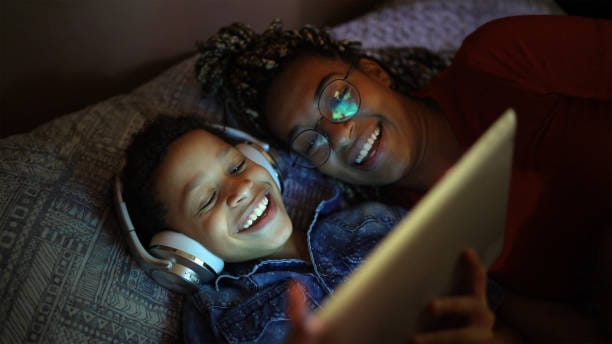Over the years, there have been series of strong points surrounding the impact of screen time versus playtime on children’s development and as digital devices have become increasingly integrated into daily life, concerns have arisen about the potential effects of excessive screen exposure on children’s physical, mental, and emotional well-being. At the same time, the importance of playtime whether outdoor activities, creative pursuits, or social interactions has been consistently highlighted as essential for fostering growth in all areas.
However, many adults today face challenges in encouraging enough playtime for children, often due to busy schedules, academic pressures, or the growing reliance on screens for entertainment and education. Striking the right balance between screen time and playtime is crucial, as both offer unique benefits that contribute to a child’s overall development.
1. Physical Health

Screen time, when managed well, doesn’t have to lead to an inactive lifestyle. At the same time, playtime, especially outdoor or active play, encourages physical movement, improving coordination, strength, and overall fitness. A balance ensures that children get time for both mental stimulation and physical activity.
2. Mental and Intellectual Growth

Screen time can provide educational value when used appropriately, complementing learning in a digital age. However, it should not replace the creativity, problem-solving, and social experiences that unstructured play offers. Playtime helps develop critical thinking, creativity, and emotional intelligence, which digital media alone cannot fully provide.
3. Social Skills

Playtime offers opportunities for children to interact with peers, helping them develop essential social skills like empathy, communication, and conflict resolution. Digital devices can support social connections, but face-to-face interactions are essential for cultivating strong social relationships and emotional understanding.
4. Emotional Well-being

Play gives children an outlet for emotional expression, helps them manage stress, and builds self-confidence. When balanced with screen time, it supports emotional regulation. Technology, when used thoughtfully, can also offer emotional learning, but it shouldn’t replace the direct, interactive experiences that children gain through physical and social play.
5. Sleep and Routine

Screen time, when balanced with other activities, should not interfere with sleep patterns. Proper screen time management, such as limiting device use before bed, allows for better sleep quality. Playtime, particularly activities that wind down the day—like reading or relaxing games—can enhance a child’s routine and promote restful sleep.
A well-balanced approach to screen time and playtime allows children to benefit from both digital learning and physical, social, and emotional development.
images gotten from pixels.com

